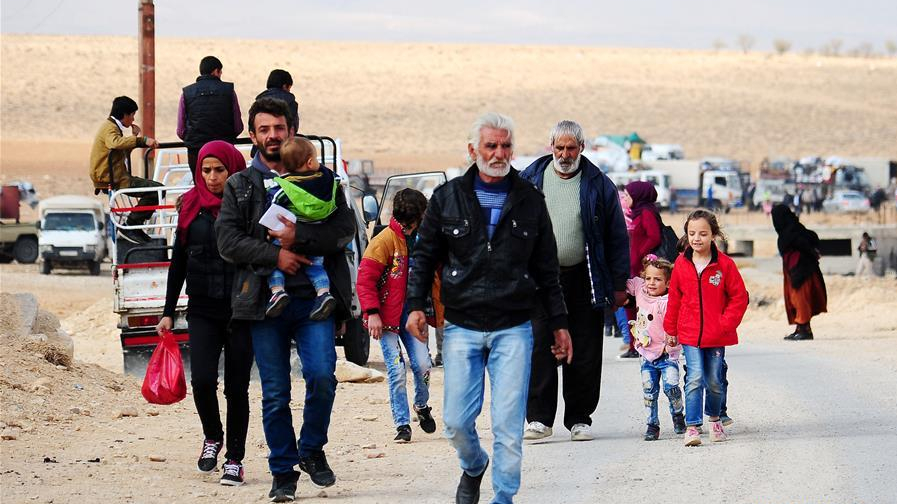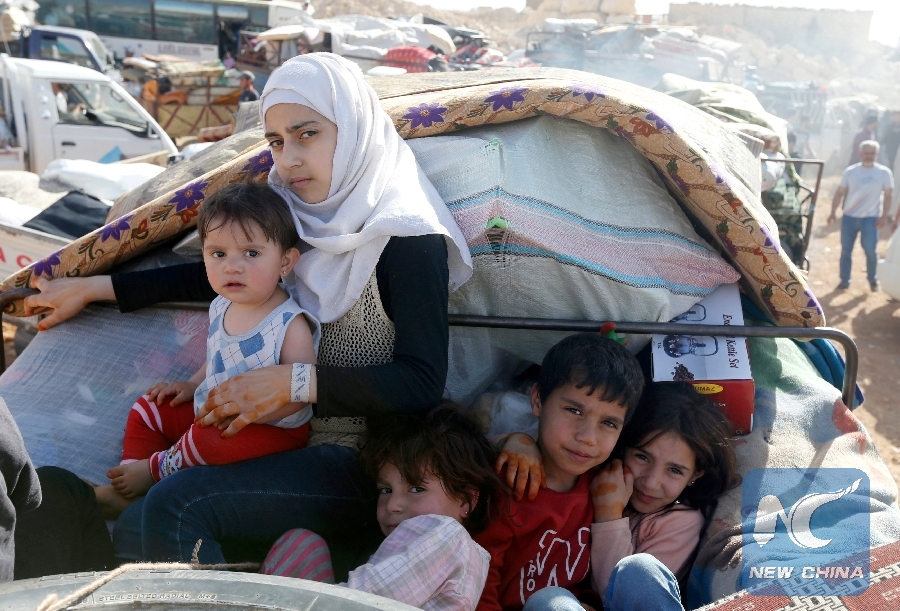
Editor's note: Hamzah Rifaat Hussain is a former visiting fellow at the Stimson Center in Washington, and currently serves as assistant researcher at the Islamabad Policy Research Institute (IPRI) in Pakistan. The article reflects the author's opinions and not necessarily the views of CGTN.
Turkish President Recip Tayyip Erdogan has recently castigated Greece for adopting draconian measures to curb the inflow of Syrian refugees into Europe. Europe is striving hard to avoid a repetition of the 2015 migrant crisis when millions of refugees from the Middle East and North Africa tried to reach its shores through Turkey. The refugee crisis resulting in the rise of populism, far-right politics and policy quagmires for the EU to deal with.
In the backdrop of these developments, the European Union foreign policy chief Josep Borrell announced a five-point strategy ahead of the EU–African summit scheduled for October. It entails forging closer partnerships with African states to fight climate change and create employment prospects on the continent. This is outlined in an 18-page plan seeking to promote development and prosperity on the continent. However, the timing of the "Green Africa" policy, its various contours which are subject to debate and its ability to stem the migrant flow as a European priority become questionable.
First, North Africa, the Sahel region and the Horn of Africa are conflict zones beset by civil wars, domestic terrorism and violence in states such as Libya and Somalia. Further south, Nigeria's economic development has been hampered by the violent activities of Boko Haram, which is a contributing factor to the migration crisis.
An African policy adopted by a bloc that sees the migrant crisis as a priority needs to be cognizant of security dynamics within the continent and not limited to climate change only, particularly at a time when Europe itself continues to grapple with terrorist threats and attacks with a rise in xenophobic attacks against refugees and populist and right wing political parties gaining traction across the continent.
Nowhere in the proposed 18-page plan are details on the amount of funding that the EU plans on disbursing to Africa. It only provides prospective coverage of how the multi-billion euro investments through the EU's budget, its development banks and attracting private sector finance could materialize if the policy is implemented. Africa's issues however go beyond funding, development banks, private sector finance and climate change only.
Along with being beset by the scourge of terrorism, the continent has recently witnessed political turmoil in states such as Zimbabwe and Kenya which has had a destructive effect on their economic potential and contributed towards poverty, alienation and unemployment.
Many sovereign states have also had difficult experiences with Western aid projects such as Nigeria which has grappled with sovereign debt that has impeded economic growth, job creation and prosperity despite its massive oil reserves. These factors, if not addressed in a holistic manner by the European Union as part of its Africa plan, can have a severe impact on the migrant crisis with factors such as terrorism and lack of political stability contributing to the migrant inflow alongside Syrian refugees trying to cross into Europe from Turkey.

Syrian refugees prepare to return to Syria from the Lebanese border town of Arsal, Lebanon, June 28, 2018. /Xinhua
Syrian refugees prepare to return to Syria from the Lebanese border town of Arsal, Lebanon, June 28, 2018. /Xinhua
Yet, Africa like most continents does grapple with the effects of climate change and it is definitely an issue that needs to be addressed with droughts in the Sahel region, Djibouti and Chad resulting in widespread hunger and malnutrition. However, part of Africa's problem which is not addressed by Joseph Borrell is the lack of adequate policy measures that address key areas such as hunger, disaster management and unemployment which requires partnerships with aid agencies going beyond tackling climate change.
A cosmetic approach not only has the potential to contribute towards severe income inequality on the continent but negates the complex political dynamics that define Africa and the variegated nature of its societies and governance systems. One part of the plan for example is to finance fossil fuel-dependent regions for cleaner industries and training manpower for sustainable growth. While undoubtedly an excellent strategy in terms of alleviating Africa's climatic issues, the plan falls short of addressing the core issues of transparency of governance, poverty alleviation and transnational terrorism which have a direct impact on migration to Europe.
Separately, the "Green Africa" strategy has been criticized by independent charitable organizations such as Oxfam for its inability to stem the flow of migration to the point of overshadowing the optimism initially expressed by the EU. For Europe, nation building and reaching political settlements as is the case with states such as Libya and Kenya should actually be the priorities for a region known for playing a key role in mediating key disputes.
There are points of convergence with Africa as well. The rise of populist movements which demand greater control over immigration and stricter border controls in Europe including eurosceptic and supremacist organizations which attack migrants and demand a greater say in the political process is similar to Africa facing the multipronged threat of Boko Haram, Al Shabaab and various rival factions in Libya jostling for power.
If core issues in Africa and the Middle East are not addressed through strategic foresight, specific issues such as climate change and unemployment would only be part and parcel of the many issues such as migration confronting the Europe and the globe today, let alone Africa.
(If you want to contribute and have specific expertise, please contact us at opinions@cgtn.com)